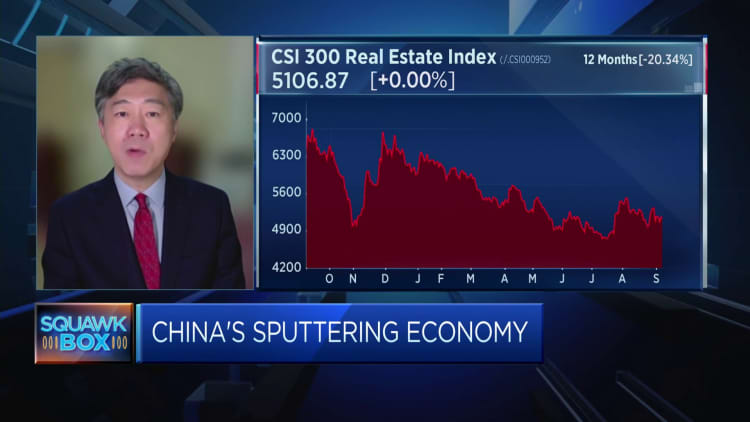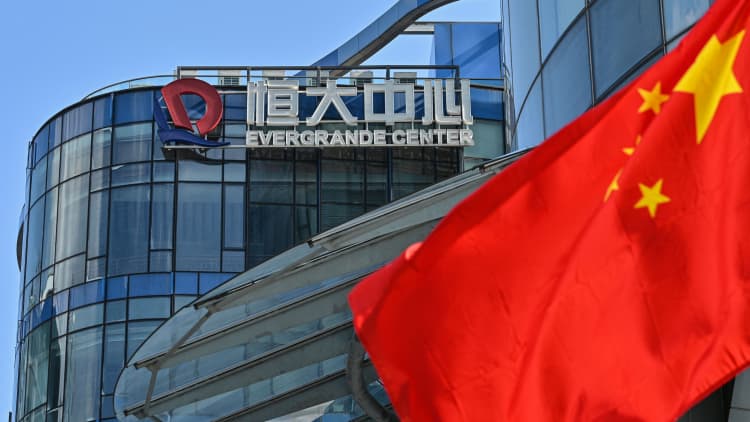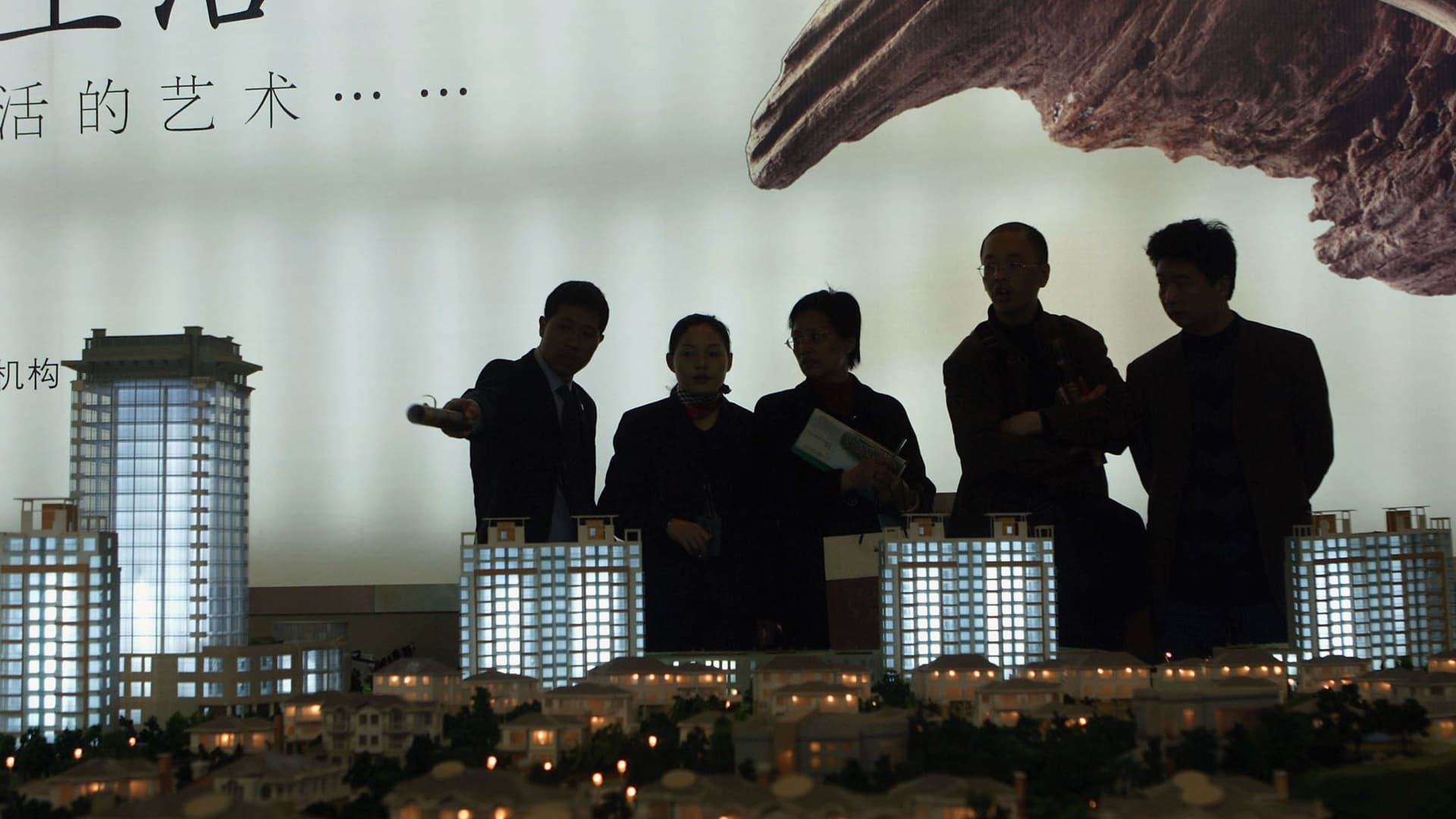Pictured here are models of a real estate development in 2005 in Shanghai, as China’s property boom was gathering steam.
China Photos | Getty Images News | Getty Images
BEIJING — China’s real estate issues have once again brought attention to the world of shadow banking and its impact on the economy.
Shadow banking — a term coined in the U.S. in 2007 — refers to financial services provided outside the formal banking system, which is heavily regulated.
In contrast, shadow bank institutions can lend money to more entities with greater ease, but those loans are not backed in the same way as traditional banks. This lack of backing means sudden and widespread demands for payment can have a domino effect.
Furthermore, the limited regulatory oversight of shadow banking makes it difficult to determine the actual scale of debt and the risk it poses to the economy.
In recent years, the Chinese government has taken steps to limit the rapid growth of non-bank debt.
Developers were able to borrow freely from shadow banks, bypassing borrowing limits for land purchases.
Logan Wright
Center for Strategic and International Studies
What sets China apart is the dominance of the state. The largest banks in the country are state-owned, making it more difficult for non-state-owned businesses to access financing from traditional banks.
The state-dominated financial system also created the belief that the state would always provide support — an implicit guarantee — resulting in participants borrowing and lending money with this assumption.
Estimates of the size of shadow banking in China vary greatly, but it is believed to be in the trillions of U.S. dollars.
Shadow banking and the real estate sector
China’s property sector, accounting for approximately one-fourth of the economy, intersects with shadow banking, local government finances, and household assets.
Real estate companies purchased land from local governments, which needed the revenue and economic benefits of regional development. Chinese individuals eagerly bought homes or speculated on property as prices surged over the past two decades.

“Developers were able to borrow freely from shadow banks, bypassing borrowing limits for land purchases,” said Logan Wright, Trustee Chair in Chinese Business and Economics at the Center for Strategic and International Studies, in an April report.
“As a result, land prices continued to rise, and developers increased housing costs to maintain profits.”
According to Wright, Beijing’s recent crackdown on shadow banking forced developers to seek alternative sources of financing to repay existing loans. Developers began relying more on pre-sales of apartments to homebuyers through mortgages and reducing construction to save costs.
The deleveraging campaign launched by China’s leadership in 2016 to reduce systemic financial risks is the only logical explanation for the country’s economic slowdown
Logan Wright
CSIS Trustee Chair in Chinese Business and Economics
Subsequently, the government implemented stricter restrictions on developers in August 2020 by placing limits on debt levels.
After decades of rapid growth, Chinese property giants such as Evergrande and Country Garden have faced challenges in repaying debts. Their cash flows have been severely impacted by declining home sales.
Simultaneously, news emerged about trust fund Zhongrong’s inability to repay investors for certain products. The fund had lent money to developers.
Hidden debt in trust funds
It is now clear that some struggling real estate companies had hidden debts off their books.
“Recent disclosures have raised questions about the loose controls and aggressive accounting practices of developers during the boom years,” said S&P Global Ratings in late August.
This summer, property developer Shimao revealed it had significantly more debt than previously disclosed, unbeknownst to its former auditor PricewaterhouseCoopers. PwC resigned as Shimao’s auditor in March 2022.
“Some of those hidden debts were provided by the trust companies,” said Edward Chan, a director at S&P Global Ratings, in an interview with CNBC.
“These trust companies were essentially part of China’s shadow banking system.”

Trust funds sell investment products, primarily to wealthier households.
As of the end of March, about 7.4% of trust funds in China were exposed to real estate, equivalent to about 1.13 trillion yuan ($159.15 billion), according to data from the China Trustee Associations cited by Nomura.
However, it is estimated that the actual level of borrowing by developers from trust companies is over three times greater at 3.8 trillion yuan as of the end of June.
“Some trust products invested in the property sector may not have disclosed the actual use of funds or intentionally made this information less transparent to bypass financial regulations,” the Nomura report stated.
Follow Google News
Denial of responsibility! Vigour Times is an automatic aggregator of Global media. In each content, the hyperlink to the primary source is specified. All trademarks belong to their rightful owners, and all materials to their authors. For any complaint, please reach us at – [email protected]. We will take necessary action within 24 hours.


